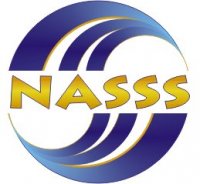written by Erin Enguero
When I began college, I knew that there would be many opportunities to expand my knowledge not only as a future health care professional and kinesiologist, but as an educated, well-rounded individual. However, the last thing I would have expected was to find myself in Austria at age 20 for the Salzburg Global Seminar to learn about Global Citizenship. (You may recall that our very own KIN faculty member, Dr. Theodore Butryn attended the Seminar last year too!)
Since our field centers around the study of human movement, it would appear strange on the surface to leave the United States to discuss  topics such as ethnocentrism, maps, conflict, world history, educational opportunities, and religion at the Schloss Leopoldskron (where the Sound of Music was filmed). Yet who can turn down the opportunity to converse with amazing scholars from all over the country, experience a new culture, enjoy the beautiful green landscape, indulge in the local cuisine, and for some of us, travel to at least three different countries after the seminar was over? This trip made me realize the importance of an open mind amidst the numerous individuals who will eventually cross our paths. A wide range of knowledge is truly an invaluable tool that may determine whether you get along with your co-workers and clients, or simply how you decide to live your life.
topics such as ethnocentrism, maps, conflict, world history, educational opportunities, and religion at the Schloss Leopoldskron (where the Sound of Music was filmed). Yet who can turn down the opportunity to converse with amazing scholars from all over the country, experience a new culture, enjoy the beautiful green landscape, indulge in the local cuisine, and for some of us, travel to at least three different countries after the seminar was over? This trip made me realize the importance of an open mind amidst the numerous individuals who will eventually cross our paths. A wide range of knowledge is truly an invaluable tool that may determine whether you get along with your co-workers and clients, or simply how you decide to live your life.
Attending the Salzburg Seminar changes one’s mindset in other ways: To be reminded of a journey’s novelty, rather than a goal’s completion. To explore the human potential of resilience that often defies all scientific and logical explanations. And to be determined to reach for the elusive meaning of our lives so we can look back and smile at our most memorable moments. My time in Salzburg, Austria was without doubt an unforgettable experience (read more on our Salzburg Scholars 2013 Blog!) and I encourage my supportive peers and admirable professors to consider embarking upon this wonderful opportunity. After all, kinesiology representatives move the world! I look forward to incorporating this love for movement in my upcoming Salzburg project this 2013-2014 school year.
P.S. Upon leaving Europe, I am happy to say my summer adventures were not quite over. Read about Kinesiology Ambassador’s first successful “How To Succeed as a KIN Major Workshop”!
